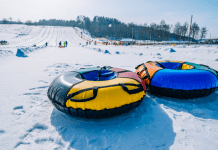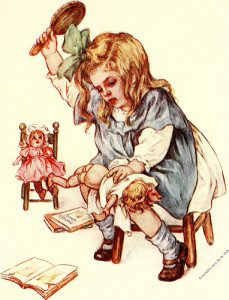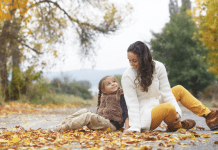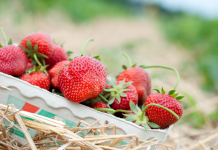I try to get most of my news from Jon Stewart so that even the most horrific stories make me laugh, yet I accidentally stumbled across the Adrian Peterson story while doing some research for this piece. If you, like me, avoid the news so that you don’t spend the remainder of your day curled up in the fetal position downing tequila shots, I’ll spare you the (quite literally) gory details and sum up by telling you that a professional football player beat the living daylights out of his four-year old son and called it a “spanking.”
Now, I know all of you reading this are as repulsed by this as I am. Most of us understand a difference between a spanking on the bum and a beating. In fact, according to the Child Trends Data Bank, 94% of American parents report using spankings for three to four year olds as standard disciplinary action, and I feel absolutely confident that 94% of Americans aren’t routinely beating their children. I have friends who have admitted to spanking their children, and these friends are loving, gentle parents who have only used spanking as a last, desperate resort. So let me preface the rest of this post by first clarifying that everything I cite here is based not on physical abuse—which is obviously wrong on many levels—but on your average spanking by loving parents as a form of discipline.
Spanking is against the law in over thirty countries (even in the privacy of one’s own home), yet MOST American parents still spank their kids. So why do they? I was curious: what were the positives of spanking? I found very few sources that advocated or condoned spanking (although Cosmopolitan magazine did give me some good tips on how to spank my husband), and all of them were purely opinion pieces, not remotely backed by research, but here is the gist of what I found:
The evangelical Christian group, Focus on the Family, tells parents to be “diligent” with spanking, claiming that “if it doesn’t hurt, it isn’t really discipline.” A number of pro-spanking forums argue that spanking is important because kids need to learn self-control, and other forums included people whose parents spanked them who spank because they themselves “turned out fine.”
Of course, whether or not adults who were spanked as children actually DID turn out fine is hard to quantify. According to a study conducted by the National Institutes of Health, corporal punishment actually reduces the brain’s gray matter, causing serious mental health issues later in life, including depression, aggression, and addictive behaviors. As for learning self-control? Scientifically speaking, spanking actually hinders a child’s ability to develop self-control. A study conducted by the Journal of Cognitive Neuroscience found that “the more gray matter you have in the decision-making, thought-processing part of your brain, the better your ability to evaluate rewards and consequences.” Are you following this? I was truly shocked. Scientific research has concluded that spanking kids decreases their gray matter. Gray matter helps a person make appropriate, self-controlled decisions. Ergo, the more a kid is spanked, the less they will be neurologically capable of making good choices.
While it surprised me to see this scientifically laid out, logically, it makes sense. Is a child who is spanked for misbehavior truly learning the reason that behavior is unacceptable? For example, if a child pushes another down at the playground and is then spanked for it, it seems like the child would only learn to fear the punishment rather than learn that he has hurt his friend. In other words, spanking seems more likely to make a child less self (and others) aware and to merely encourage “behaving” when a parent or teacher is watching. University of Texas associate professor Elizabeth Gershoff has been studying the effects of corporal punishment for 15 years. She claims “no study that I’ve ever done [has] found a positive consequence of spanking. Most of us will stop what we’re doing if somebody hits us, but that doesn’t mean we’ve learned why somebody hit us, or what we should be doing instead, which is the real motive behind discipline.”
Discipline is defined as training that corrects, molds, or perfects the mental faculties or moral character. The big question is this—is there ever an instance that requires spanking to accomplish that goal? Dr. William Sears, one of the nation’s most renowned pediatricians, thinks not. He argues that spanking actually damages the parent-child trust relationship, making true discipline that much harder.(7) Besides what has already been cited here, overwhelming evidence also suggests that spanking just does not work. According to Psychology Today, spanking increases aggression in toddlers, and teaches hitting instead of dialogue as a solution to disagreements.
My son is four, and he is…challenging. (“Challenging” should read here as a euphemism for “pain in the freakin’ arse.”) The times that are hardest for me are when he hurts his sister or a friend out of what I think is sheer absurdity. At times, I have had to physically suppress my desire to practice a sort of perverse-golden-rule form of parenting with him: showing him what it feels like to have his hair pulled, a toy thrown at him, or to receive a rough shove from behind. When I try to use logic and reason with him and he laughs in my face or runs away or (my favorite new phase) SPITS on me, I have to put myself in time-out (there’s usually chocolate in Mommy time-out) so I don’t go all animalistic and maul the boy. But after some time to myself (with a bottle of wine) (just kidding) (only half a bottle), I remember that “using my words” will much more likely produce the behavior I want in my kids LONG-term, while spanking only produces—at best—a short-term solution, and, according to way more research than I can put into this one article, creates exponentially more problems than it solves. So, hopefully, modeling my own self-control will be what eventually teaches my kids to do the same.

















GREAT JOB! Both in writing the article and not killing your son!
Thanks! It is a daily accomplishment when he’s still alive at the end of the day! 😉
Great article, Megan. It gives me some fodder for thinking about an issue I’m uncertain about.
Very awesome article. It’s important to remember that “spanking” typically stems from parental anger, and rarely is it used in the context parent’s will claim it’s used in (calmly, and after they’ve cooled off and explained to their child what they did wrong). Not spanking requires self control for the parent as well, which may be the hardest part in the decision.
Thanks for such an exhaustively thorough article. I am now that much more sure I am an awesome mom. 😛
You are a great mom! 🙂
I would guess that fewer parents spank today than did when I grew up, but I see more disciplinary problems with today’s youth than when I was growing up. If you tease a dog, you might be bitten, if you stick a fork in a socket, you might be shocked. Do those things reduce gray matter? And if spanking actually makes kids more violent, why are today’s youth more violent than ever? I’m sure there are many more factors that make a person an adult than a few whacks on the butt for misbehaving.
Thanks for your comment. I think it’s important to differentiate between natural consequences and corporal punishments administered by a parent. As you pointed out, there are natural consequences to our actions, some of them painful, and the same is true for children. Obviously teasing a dog could lead to a bitten hand, but teasing a dog wouldn’t naturally lead to a slap by a parent. We as parents can mimic natural consequences without resorting to hitting. If my son throws a toy car at my daughter, it seems a natural consequence to take away the car, not to enforce a physical punishment. I fear a spanking would only teach him might is right, and if you don’t like someone’s behavior you should hit him for it.
You do raise an interesting point about today’s youth being more violent than ever. I did a quick google search and found that while gun violence among youth IS up, other violent acts have basically plateaued since the 1980’s. Of course, these are just the reported incidents. It has certainly occurred to me that we may need to change our parenting tactics when my son is aggressive on the playground, but I just can’t escape the feeling that hitting to teach him not to hit seems entirely counterintuitive, and I hope to find a gentle way of teaching him gentleness.
My issue with spanking is that Im not violent to others but I instead am violent to myself. I also learned to resent authority. And I felt insecure and had anxiety attacks growing up.
One other thing I did not know until it clicked later in life was that it was sexual to me. My parents had no idea and were horrified when they found out that they had messed me up sexually by hitting me on my bare bum in the name of “disapline”. Ive learned there are far too many others out there who like me have the same sexual problems from being spanked as young children as well.
My parents didnt spank me hard or even often but when I was 6 i was already sexually pleasing myself without having any understanding of what I was doing or feeling and they all centered around the fantasy of being spanked. Like I said, Im not alone in this experience. Please be careful. There is nothing a 6 year old can do to justify ignoring this warning and risking giving them the heartache I have lived with my whole life.
I was spanked as a child and I am NOT fine.